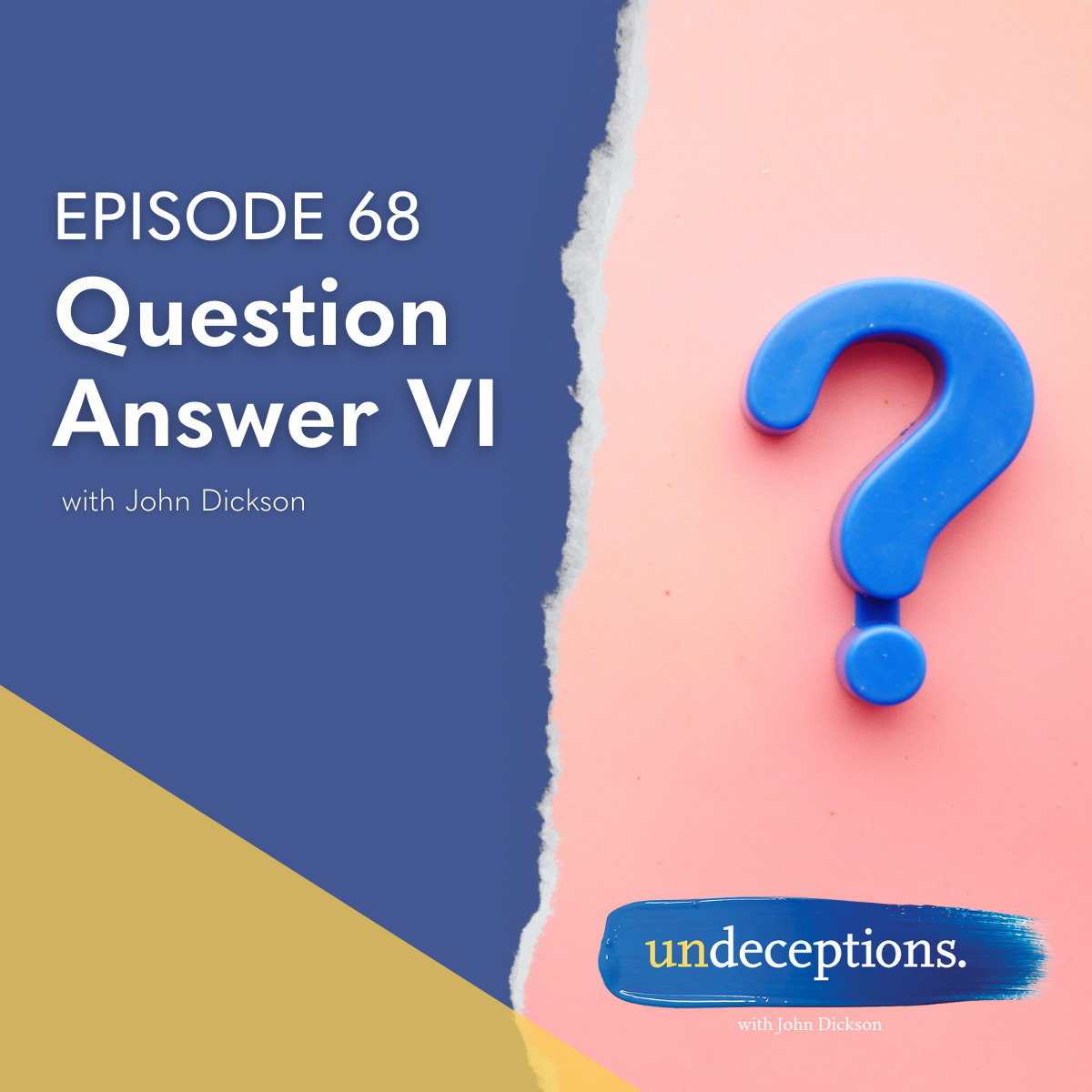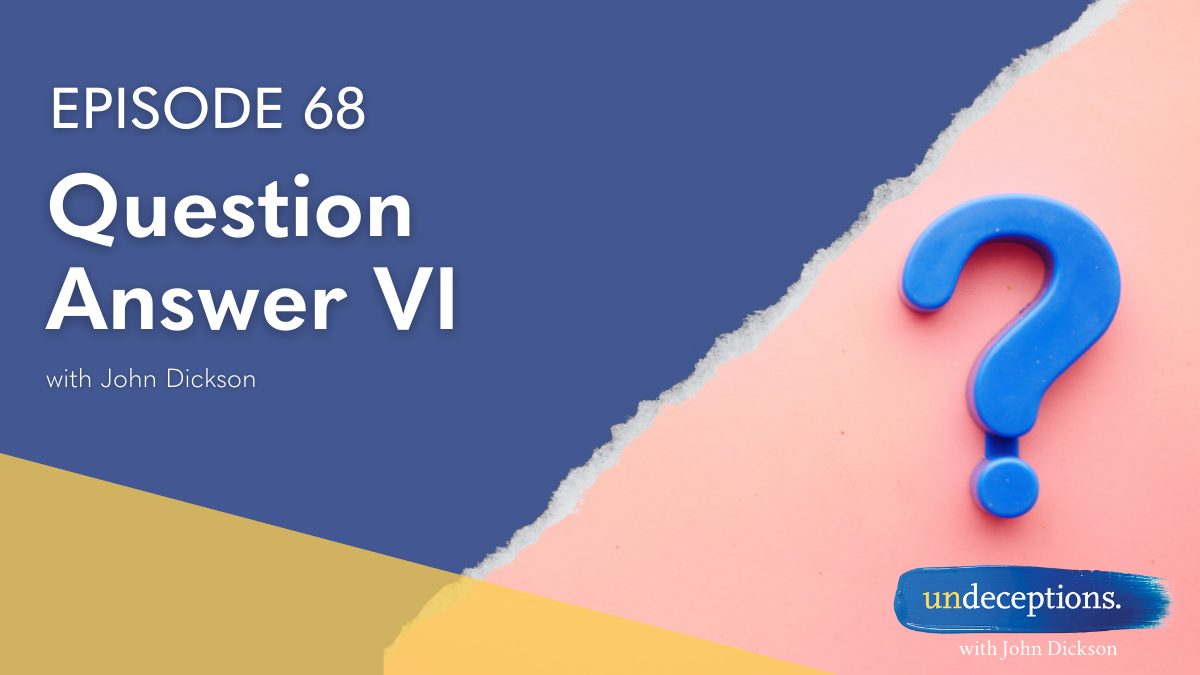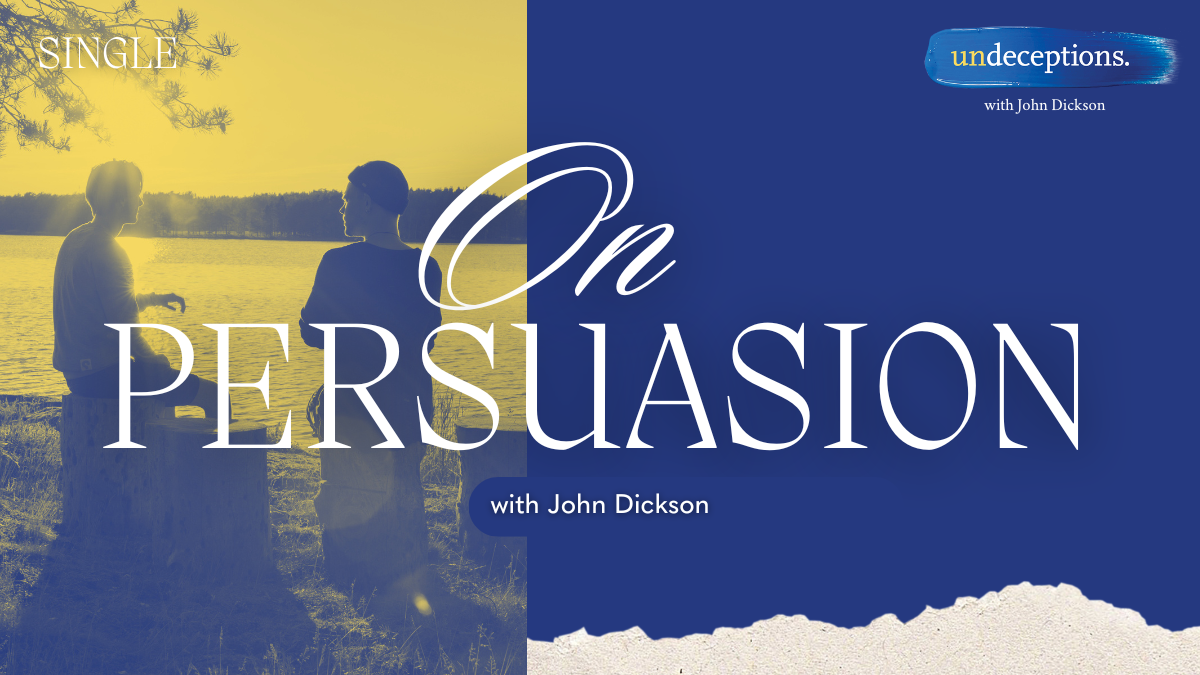
It’s Season 6’s Q&A episode – and you guys really didn’t hold back. There are some TOUGH questions this time around which you’ve called in or written to us … and just like we promise, John does his best to give you an answer — some of which (again) are guaranteed to raise more questions.
Links
Download a transcript of this episode here
This episode was sponsored by Zondervan’s new book Typology-Understanding the Bible’s Promise-Shaped Patterns: How Old Testament Expectations are Fulfilled in Christ by James M. Hamilton Jr.
Questions for this episode:
1. This recent article from the ABC on the history of indexes made an interesting statement about a change in the practice of preaching in the 13th-century. My question is, did the mendicant orders really represent such a seismic shift in what we understand as a sermon today, and what was the actual progression like from early church sermons to 21st century preaching? Can’t wait to hear what you dig up.
- Check out some of the preachers John mentioned in this answer:
2. There is apparently evidence that Origen taught reincarnation. Did early Christians believe in reincarnation?
- Learn more about Origen of Alexandria.
3. My question is around the whole idea of ‘wokeness’ and how that works in with the Christian framework. Woke bad or good? What do you think?
4. In your recent podcast “Knights of Christ” connected to your book you made the point that part of the cultural negotiation in Europe was to approve of the warrior culture in Europe. This over the centuries led to the crusades and other disasters.
Cultural negotiation is very often just flicked off in some Christian discussions as our strength. But your book raises big questions over that process and for how long we let that run. Small steps at the beginning lead to big divergences a 100 or more years later if there is no corrective action.
What about now? What are the big cultural negotiations we have already let slide and need to act – those are the easier ones I suspect to spot. But what are the little ones that will turn big and bite us. It just makes me wonder how to understand the present and not contribute to future mistakes.
5. I am bothered by different interpretations of the Bible throughout history, and now between different denominations and even within the same denomination. I am not talking about styles and preferences, and also not about fundamental beliefs, but things in between such as complementarian vs egalitarian, calvinism vs arminianism etc. In the past, race segregation and slavery were thought to be biblical.
And these different interpretations were by biblical scholars, mature believers and those genuinely and diligently studying the bible.
How should a christian respond and react to this fact? How can one be certain that what is widely accepted by mainstream christianity now will not be shown to be incorrect by the next generation?
6. Tattoos… Any thoughts on it? I know a few Christian condemn it based on its “Pagan roots”. What do you think?
- Watch John’s full tattoo story on “Ink Plots”, a YouTube series by Eternity News.
7. Is the persecution of the early church a myth?
8. What if the Crusades never happened?
9. I am wondering why there seems to be such a huge difference between the old and new testaments in how they judge the importance of monogamy and sexual faithfulness. In the Old Testament God seemed to have no problem with Abraham marrying his half sister and then allowing the Pharoah to sleep with her to save himself. Both Solomon and David seemed to have hundreds of wives and concubines yet God was only angry at David for plotting murder to get one of them – there seemed to be no problem with how many others he slept with. I thought Jews were forbidden for taking non- Jews in marriage yet Solomon takes a Pharoah’s daughter as one of his wives. The biblical heroes and those most in God’s favour don’t seem to have been required to follow rules that came later.
10. Regarding the ‘Pro Life‘ episode: In Muslim cultures, if a woman is raped, she’s considered an adulterer and the penalty is death. If a woman is raped and becomes pregnant, she’ll be killed. Should she abort the baby to save her own life, or should both be killed because of a man’s sin? If the option is present, should she carry to full term and then be killed, and the baby sent for adoption? Love to know your thoughts.
11. In ep 24 ‘LGBTI Christian‘ I heard you quote John 7:53-8:11 as if it were scripture the same as the rest of the bible. I’ve been confused about this text’s scriptural authenticity for a while now. It seems like a plausible story, but added centuries later. I could come up with a plausible story about Jesus and add my story to the bible also. As long as my story does not disagree with the rest of scripture, what makes my story any different to the woman caught in adultery story?
Plenty of scholars have reason to believe that this passage is not original scripture and so I’m a bit confused by your comment.
12. I have a question that comes to mind every episode that deals with history – most recently “Paulos Apostolos“. We draw conclusions from the body of historical evidence available to us, but how could that body of historical evidence best be expanded? To (hopefully) make the question clearer; if someone gave you $10 million for the sole purpose of trying to add to the historical body of evidence relating to the NT, how would you spend it?

Undeceptions Plus offers exclusive bonus content to members. By becoming an Undeceiver, you can unlock uncut interviews, extra question and answer sessions, and peeks behind our creative process as we put the shows together. We’d love to have you with us.














































